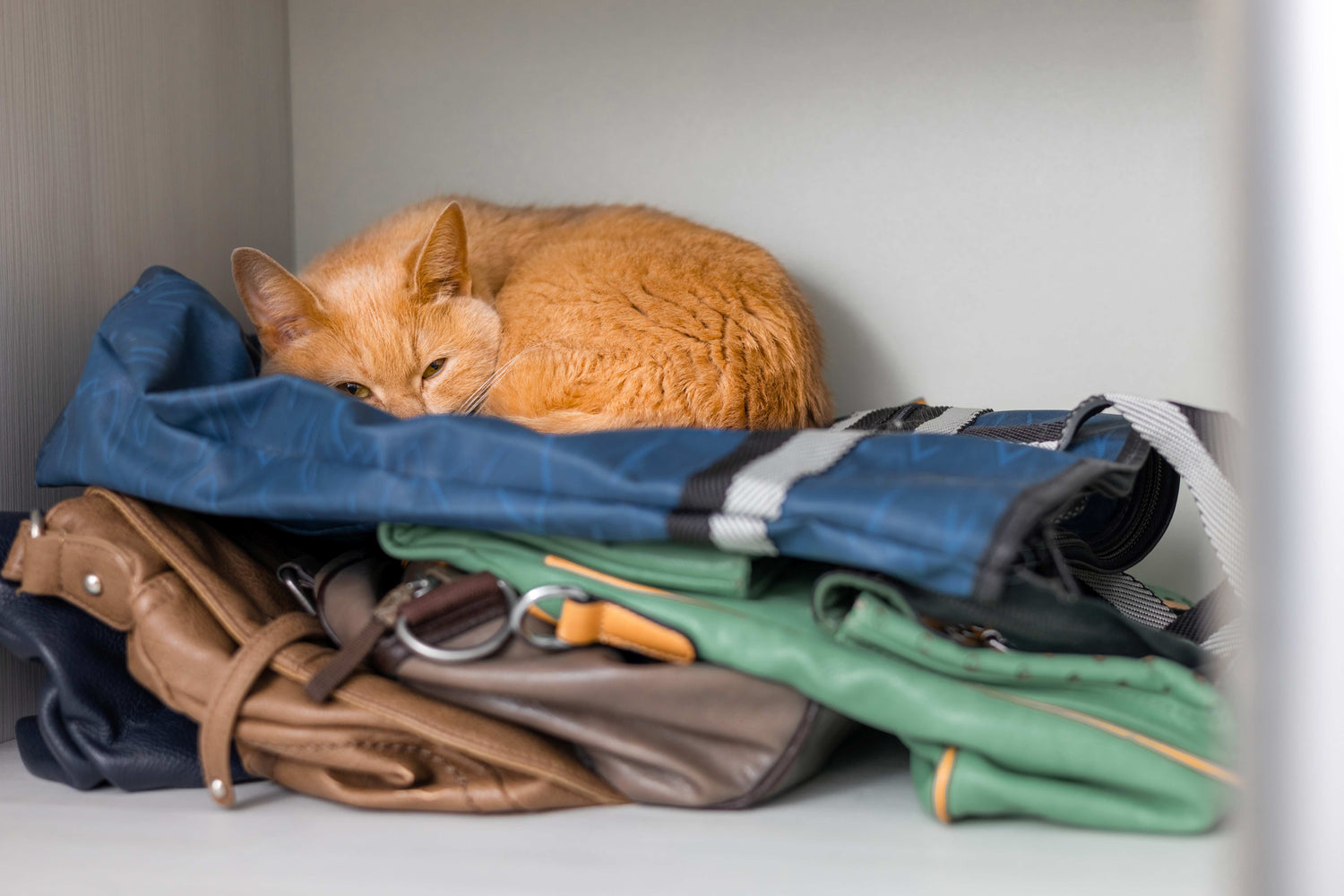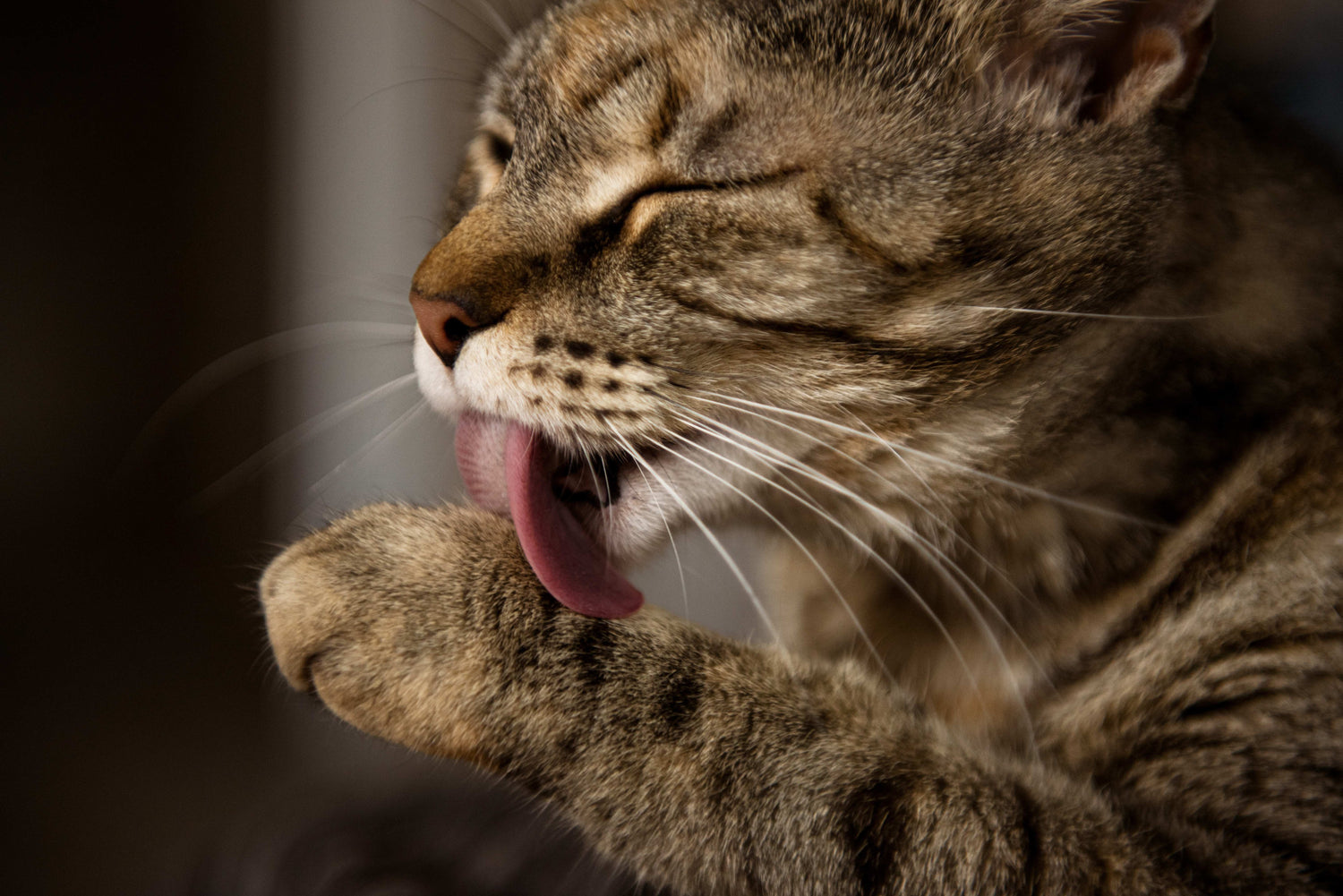If your furry friend refuses to eat, there can be many reasons for this. It is not always due to illness; external circumstances can also spoil your cat's appetite. We will show you what causes a lack of appetite in cats, how you can help your pet yourself and when you should go to the vet.
Reasons why your cat is not eating
Because cats suffer very silently, it is often difficult for their owners to recognize whether and, above all, why the animal is ill. It is therefore important to observe the animal carefully and to look for triggers in any changes in behavior.
You should take a closer look at your cat, especially if it has a loss of appetite - also known as inappetence. If your cat doesn't eat for more than 24 hours, organs can be damaged. This means that even if the cause does not appear to be serious, the animal's lack of nutrients can lead to reduced vitality and subsequent illnesses.
To get to the bottom of the cause, you can often use the principle of exclusion. Additional symptoms also indicate what is spoiling your cat's appetite.
Infectious diseases and parasites
Just like us humans, cats can also be affected by infectious diseases. This can be a relatively harmless cold or a viral disease such as FIP (feline infectious peritonitis) . Since many viral diseases and colds are initially accompanied by similar symptoms such as fever, runny nose, apathy and loss of appetite, you should consult a vet if you suspect an illness. They can determine whether medication is required or whether your furry friend needs to recover in peace.
Parasites can also affect the cat's digestive tract and cause a loss of appetite. If the animal suffers from a worm infestation, it may also experience vomiting, a bloated stomach or dull fur in addition to loss of appetite. In this case, consult a veterinarian for deworming . Worms can also be prevented with regular worming treatment.
Diseases and injuries in the mouth and throat area
Toothache and inflammation of the gums can be another reason why your cat is no longer eating. Most of the time, the animals do not allow their owners to look into their mouths, but a persistently bad-smelling breath, for example, indicates dental problems.
Injuries to the mouth and throat cause pain when eating. Watch your cat while it eats. Does it flinch when it chews? Does the food fall out of its mouth or does it even hiss at the bowl? In these cases, your animal is probably in pain and is therefore unable to eat. If a rotten tooth is the cause, the vet can remove it. Even larger injuries must be examined and treated accordingly.
Anxiety and stress
Have you just moved, have a new addition to the family or a second four-legged friend and your cat is ignoring the bowl? Stress is causing the loss of appetite. Cats are creatures of habit and react very sensitively to new living conditions. If your house cat eats less than usual after such a change, take plenty of time to play or cuddle with him. This will let him know that he is safe.
Grief can also be a trigger for loss of appetite. For example, if another cat that lived in the household dies, your pet may react with stress. An additional animal, such as a large dog, may frighten your cat. The reaction to this is also often loss of appetite.
Pregnancy and the birth of kittens can also sometimes lead to the mother cat eating less or not eating at all. Especially the day before the birth, she eats little or nothing and drinks a lot. If this behavior occurs frequently during pregnancy, you should consult a doctor. Pregnant cats need a lot of energy and therefore also need plenty of food.
Organic diseases
In addition to many harmless causes for your cat's lack of appetite, organic diseases can also be the reason for the refusal to eat. The loss of appetite often occurs with other symptoms such as Vomiting , fatigue and pain. 
Also observe the animal’s bowel movements: continuous Diarrhea or watery stools often indicate an illness that should be examined by a veterinarian. Possible illnesses include inflammation of the stomach lining or pancreas, stomach upsets, but also tumors or metabolic disorders.
If you already have a known illness, the medication used to treat it can also upset your stomach and cause a reduced appetite. In this case, ask your doctor about alternatives.
Freerunner
The cause of loss of appetite is not always illness or stress. Outdoor cats in particular like to stuff their bellies in the neighborhood. So if you notice a change in eating behavior, but your cat is not showing any other symptoms, ask in the surrounding neighborhood if anyone feeds the animal treats or other sweets from time to time. If this is the case, tell your neighbors to only feed the animal after consulting with them. This way, you can avoid feeding your cat the wrong thing, even if it has intolerances.
However, you should not only look for other sources of food among outdoor cats. Children also like to drop something under the table or feed the animal treats in between meals. So, even with indoor cats, clarify whether feeding takes place outside of the usual meal times.
If your cat spends a lot of time outside, it is difficult to control things like bowel movements or possible vomiting. However, if the animal has eaten something poisonous or spoiled, other symptoms such as apathy, increased salivation or disorientation can indicate poisoning. In this case, see a vet immediately.
There can also be poisoning hazards for cats in your own home. Make sure that your houseplants are non-toxic and that you do not put any food or cleaning products Leaving items lying around openly that can be harmful to the cat.
Age
Older cats are less active and therefore have a lower energy requirement. So if your furry friend has always been a good eater but only eats small portions in old age, this is usually not unusual. Eating also becomes increasingly difficult. However, if you notice increased thirst , this could be a sign of age-related chronic kidney failure. In this case, the vet should check the kidney values.
In general, the organs of old cats no longer function properly. In particular, the metabolism becomes sluggish towards the end of life. Waste products can no longer be broken down as quickly and irritate the mucous membranes and digestive tract. This in turn leads to a loss of appetite in many animals.
In addition, the ability to smell decreases with age. Since cats are more sensitive to the smell of food than the taste, the food they have been using up to now can become unattractive over time. Your cat simply can't smell the aroma as well as before.
To ensure an adapted nutrient intake in old age, it is also advisable to change the diet to food that is specifically tailored to the needs of older cats.
Intolerances and poor feed quality
The food itself can also be the reason why your cat stops eating. Some cats are allergic or sensitive to certain ingredients. Intolerances to certain protein sources are common. If your cat cannot tolerate the protein source in turkey, for example, switching to beef can be helpful.
If you have the impression that your pet is suffering from an allergy or food intolerance, have the cat examined and get advice. Often, simply changing the diet to hypersensitive food is enough.
Since cats use their sense of smell to decide whether their food is edible, they are particularly sensitive to poor food quality. If the cat food is stored incorrectly, the quality deteriorates. Your furry friend will quickly notice this by the smell. Your cat will avoid spoiled food in particular. Especially in the summer months, you should make sure that the food does not stand in the heat for too long. Cats are often less hungry on hot days and leave their food out.
If cats have eaten something bad and suffered from nausea or diarrhea as a result, they may learn to have a lack of appetite. They then associate eating with something negative. The reason for this is a protective mechanism that is intended to prevent the animal from putting itself in danger by eating bad food. Be patient and teach your house cat that eating is something nice and good, for example by feeding the cat from your hand.
Picky cats
Sometimes the apparent lack of appetite is simply due to the cat's mood. Perhaps it doesn't like the consistency or the smell, or perhaps it is just bored with the food selection. Although most cats are not fans of changing food, there are others who don't want to eat the same thing all the time. If you can rule out other reasons for the refusal to eat, try different food and add variety to the menu.
Stimulate appetite
If the cause of the loss of appetite is not an illness or poisoning, there are a few ways to make your cat like the food again. Above all, rely on the sense of smell. Warm the food up a little beforehand to enhance the aroma. Adding tuna often stimulates the appetite. The fish has a very strong smell and is eaten with pleasure, especially by cats whose sense of smell is impaired.
For a more appealing consistency, so-called liquid snacks, which are added as a sauce to the food, help. Mixing dry food with wet food also brings variety. If your animal has problems with its teeth, mix a little water with the dry food to make it softer.
Make sure that your furry friend has a quiet place to eat. Peace and quiet and a place to retreat are especially important for the animal in stressful situations. Stay still when the cat is eating so as not to distract it. A regular daily routine can also help reduce stress. Also pay a lot of attention to your pet to ensure psychological harmony.
The feeding area and the bowl itself should always be clean. Cats are very clean animals. A litter box right next to the bowl may save space, but it is more of a deterrent for the cat. It is also better to serve the food on a flat plate than in a bowl. If the sensitive whiskers are constantly hitting the edge of the bowl, the cat may find this annoying.





